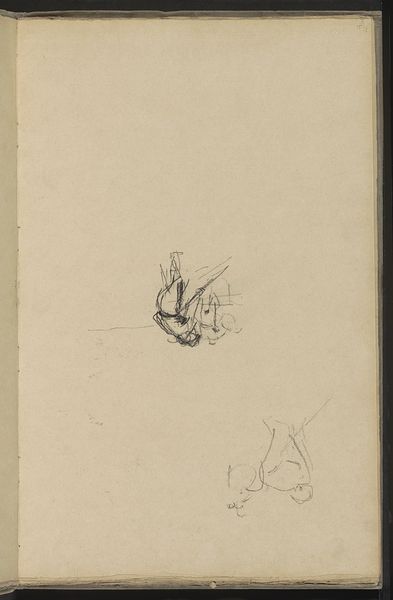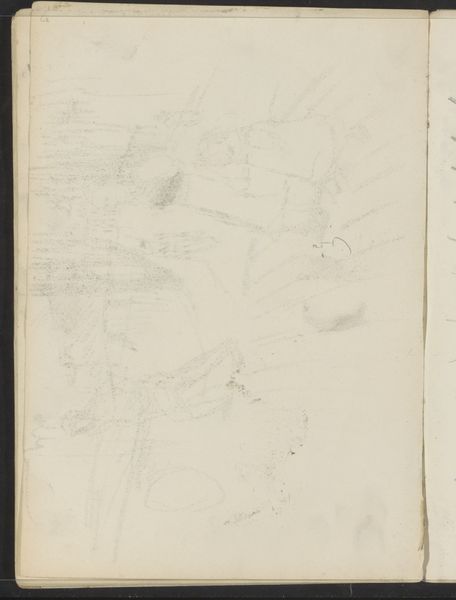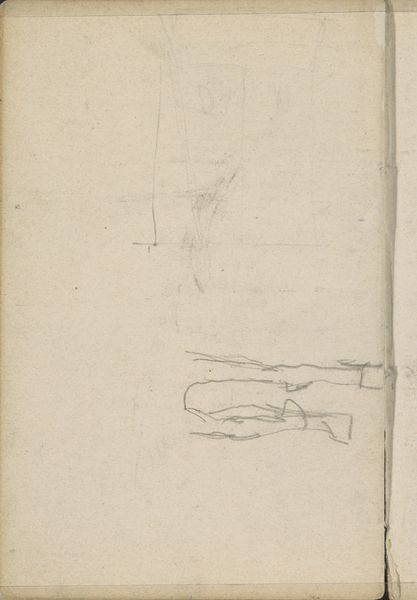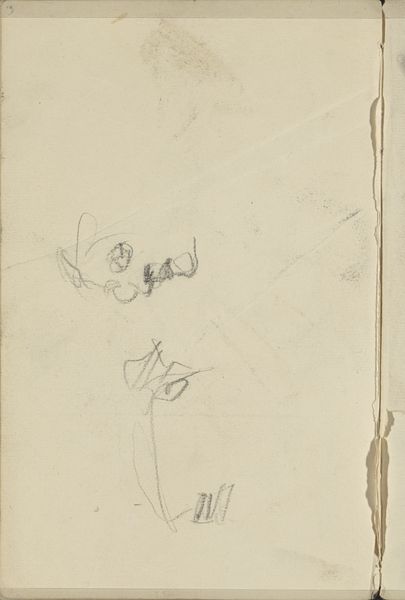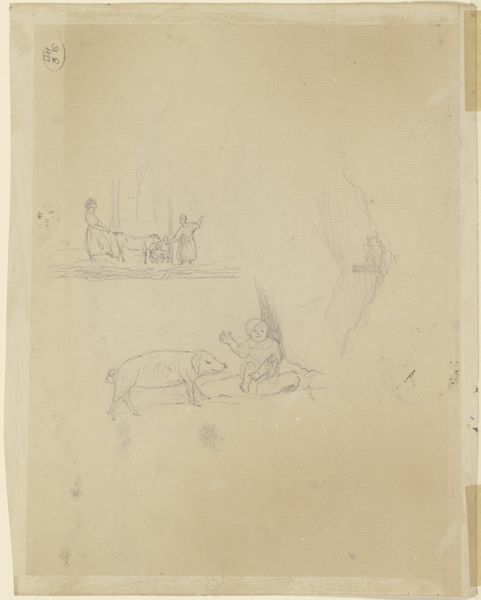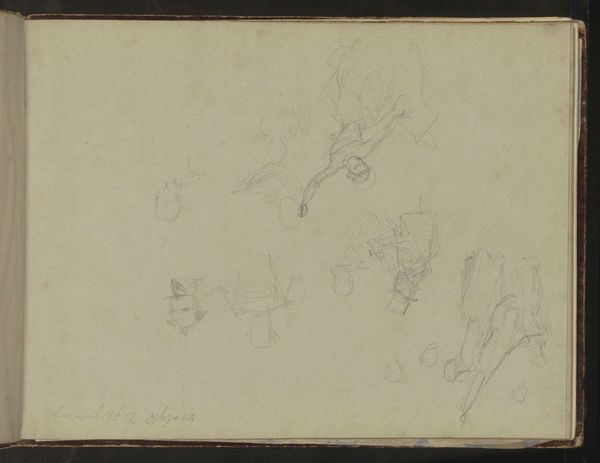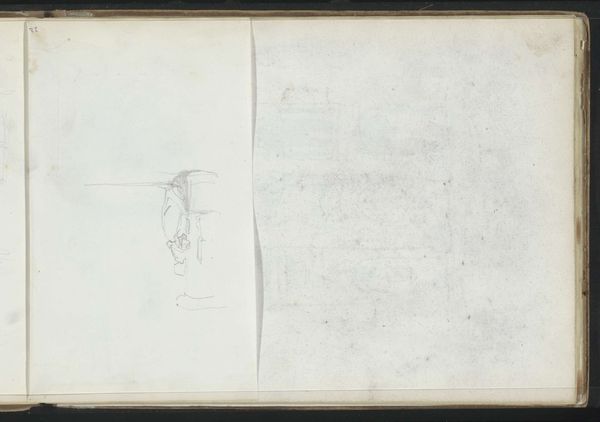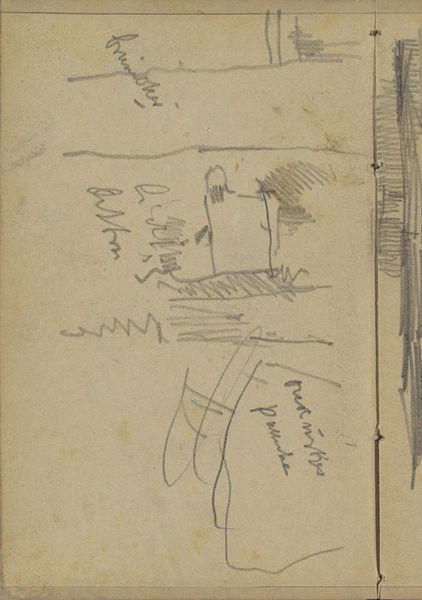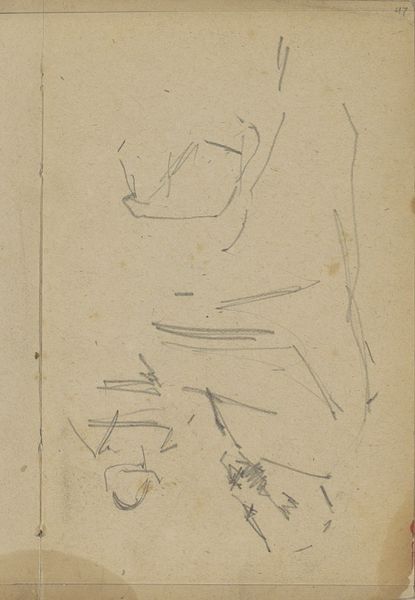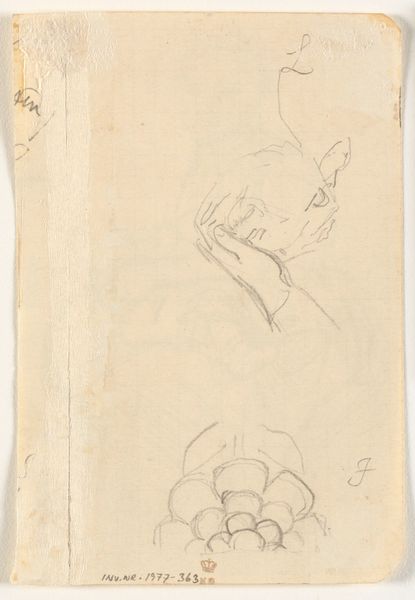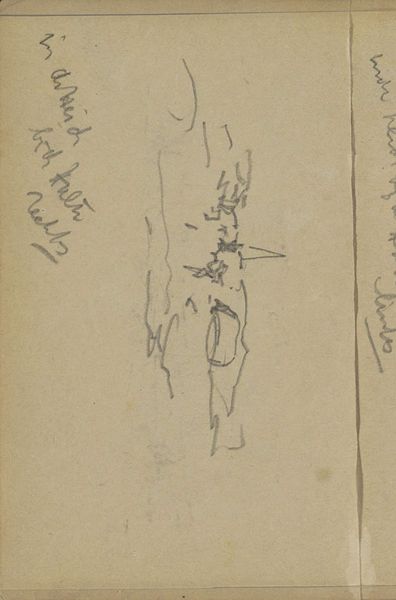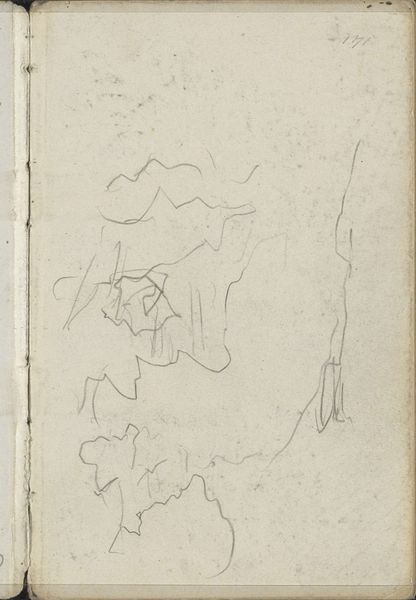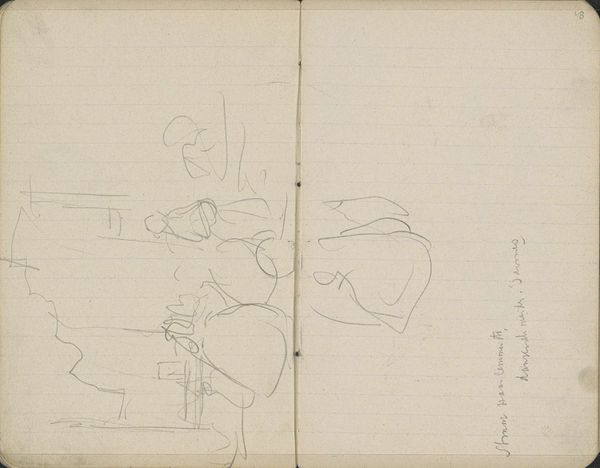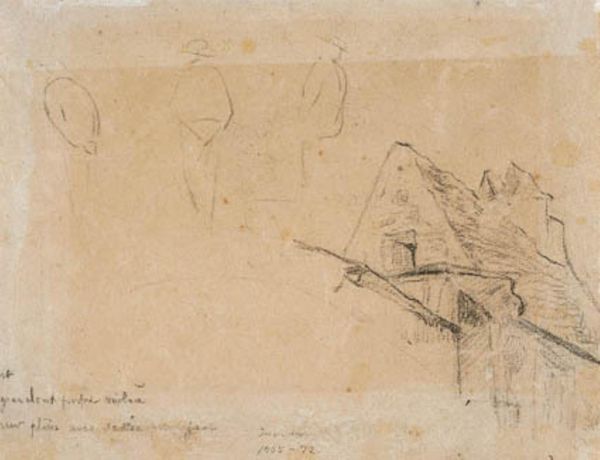
drawing, paper, pencil
#
drawing
#
aged paper
#
toned paper
#
light pencil work
#
16_19th-century
#
hand drawn type
#
figuration
#
paper
#
personal sketchbook
#
german
#
ink drawing experimentation
#
sketch
#
pen-ink sketch
#
pencil
#
ink colored
#
sketchbook drawing
#
academic-art
#
sketchbook art
Copyright: Public Domain
Editor: This is "Studien nach dem menschlichen Skelett sowie weitere Skizzen," a drawing by Victor Müller. It appears to be pencil and ink on paper, depicting studies of human skeletal forms and other abstract sketches. There's an instructional feel, almost clinical. What can you tell me about its symbols and cultural weight? Curator: The immediate image is one of impermanence, and how images can persist despite physical decay, literally in the aging of the paper. Skeletons carry complex, often contradictory meanings. The presence of the skeleton in art served as a *memento mori*, a reminder of the inevitability of death, and, in a time without medical photography, they were crucial educational aids. Do you see other symbols beyond the skeletal remains? Editor: I notice what appear to be annotations or notations, almost like inventory numbers, in one of the upper quadrants. Curator: Yes, and those offer a clue too, pointing toward an effort at organization and classification. Think about how such categorization – the scientific gaze – affects our understanding and relationship with death. Editor: So, it's not just about death itself, but about humanity's attempt to understand, catalogue, and ultimately, perhaps control it. Curator: Precisely. The drawings provide insight into cultural attitudes about the body, knowledge, and mortality during this time. What personal connections do you feel towards them? Editor: I'm struck by how immediate and human these studies are, despite the clinical subject matter. You can see the artist's hand at work, experimenting. Curator: Yes. The artist studies what appears to be a human skeleton, but perhaps also explores a personal reflection about his existence. These simple lines speak volumes when viewed through the lens of their cultural era. I had not fully appreciated the tension between objectification and personal expression.
Comments
No comments
Be the first to comment and join the conversation on the ultimate creative platform.
